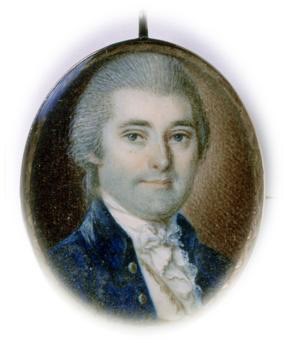
Unidentified artist, c. 1790 Independence National Historical Park Franklin's Proposal for Prayer
"I am not at Liberty to say what is done or doing in Convention but I can say things are so much in Embryo that I could give you no Satisfactory account if I was ever so much at Liberty. It is generally supposed the Convention will continue to sit for two months at least."
- North Carolina delegate William Blount to his brother
Today Luther Martin (MD) finished the speech he had started yesterday, arguing that the General Government should be formed for the states and therefore they should be represented equally. Lansing (NY), seconded by Dayton (NJ), moved to amend the 7th resolution to read, "The right of suffrage in the first branch of Congress ought to be according to the rule established by the Confederation" one vote per state. Williamson (NC) opposed the motion - if the states were equally sovereign now and parted with equal proportions of sovereignty - they would remain equally sovereign. Madison (VA) also opposed it - even Brearley (NJ) and Paterson (NJ) had agreed an equal vote was unjust to the larger states. Franklin (PA) then suggested in view of the small progress made and the different sentiments, that the Convention should be opened each day with prayer - as the Congress had been. Sherman seconded. Hamilton (NY) and others opposed the motion because the practice might rouse fears in the community. Williamson (NC) remarked that the Convention had no money to hire a chaplain. Randolph (VA) proposed a fourth of July sermon instead; Franklin seconded. The Convention then managed to adjourn without voting on the motion.
NEXT >>> |
Last updated: February 26, 2015
